Nearly two-thirds of European consumers surveyed said they would consider buying a Chinese car, German local media reported.
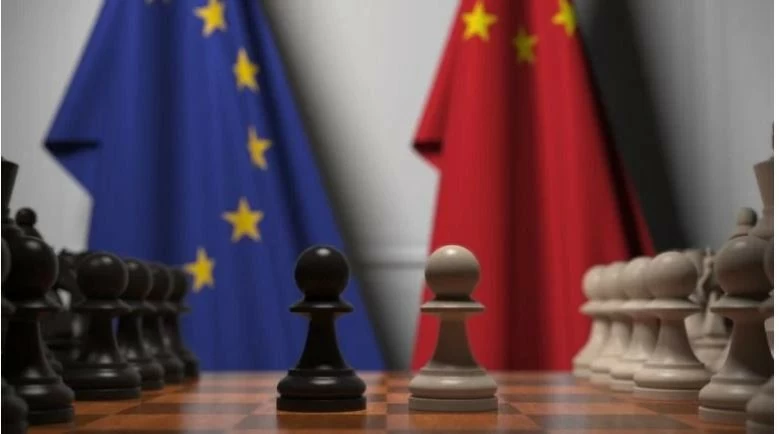 |
| EU-China Tensions: Beijing Moves to Block, But Has Europe Actually Lost a Country? (Source: Shutterstock.com) |
According to a report by the Tagesschau Program of German television station ARD, up to 59% of survey participants said that buying a Chinese car was their choice.
Young people here have an even stronger desire to buy Chinese cars. Among those aged 30 to 39, 74% said they were interested in Chinese cars; the figure was 72% for those aged 18 to 29.
According to the survey results, affordability plays a major role for those considering buying Chinese cars.
In fact, a report released by the German Automobile and Motorcycle Association (ADAC) in April found that Chinese-branded cars have demonstrated high levels of safety in crash tests conducted by the official European New Car Assessment Program (NCAP).
Based on tests of 13 different models from China and Europe over the past three years, ADAC concluded in April 2024 that “Chinese automakers have significantly improved in quality and can now catch up with established brands in the region.”
The latest development in EU-China trade tensions - on October 8, China announced that it would impose temporary tariffs on spirits imported from the European Union (EU). Starting October 11, importers will have to submit a "corresponding guarantee" to Chinese customs when importing spirits products originating from the EU. This new escalation is in response to the EU's previous approval of a plan to impose tariffs of up to 45% on electric vehicles imported from China, starting October 31, lasting at least five years.
China has vowed to continue negotiations until the last minute in response to the EU's anti-subsidy investigation into battery-powered electric vehicles made in China, Commerce Minister Wang Wentao said.
Wang also stressed that the future success of the auto industry in both China and Europe depends on cooperation between the two economic powerhouses at a roundtable meeting in Brussels between about 30 executives from the Chinese and European electric vehicle sectors to discuss the EU anti-subsidy case.
But China's commerce minister has also been vocal in his criticism of the EU's "legality, compliance and fairness" of its investigation into Chinese electric vehicle subsidies.
Meanwhile, as a leading EU member economy, German Vice Chancellor Robert Habeck revealed that Germany had strongly supported free trade and opposed Brussels' proposed tariff hike on Chinese electric vehicles during a meeting with Mr. Wang in Berlin. Mr. Habeck expressed enthusiasm for Chinese investment in the European automotive sector.
Vice Chancellor Habeck called on the EU to take a more constructive approach, stressing that “Germany will do everything in its power to help the EU-China find a mutually acceptable solution, as escalating into a full-blown trade conflict would not serve the interests of any party.”
The EU's decision to impose tariffs on Chinese electric vehicles, aimed at protecting the bloc's auto industry, could stifle growth and limit European consumers' access to more affordable Chinese electric vehicles, analysts say.
Meanwhile, the German auto industry has long thrived on the open market. These new tariffs are expected to push up the prices of Chinese cars, reducing the competitive pressure on European automakers to develop more affordable electric models, which are currently in limited supply.
The EU has thus ignored new proposals from Chinese carmakers to resolve the dispute over Chinese electric vehicles on the European market, undermining efforts to ease tensions through dialogue. However, the decision to impose tariffs on Chinese-made electric vehicles has also sparked a new wave of protests within the bloc itself.
Dissenting voices say the decision to impose tariffs on Chinese electric vehicles lacks unanimous support from all EU member states. “Many believe this is a step towards a trade war between Europe and China, which will harm the European economy in the long run,” said Croatian political analyst Mladen Plese.
German auto expert Ferdinand Dudenhoeffer, director of the Center for Automotive Research (CAR) in Bochum, warns - protectionism and tariffs are wrong strategies and will cause losses for both Germany and the EU.
In addition, on a broader perspective, EU experts warn that, in addition to disrupting trade and cooperation between the EU and China, tariffs on Chinese electric vehicles could jeopardize the EU's planned transition to a greener economy.
Former Irish minister for European affairs Dick Roche has questioned the logic of imposing tariffs on Chinese electric vehicles, given the EU's green transition goals. "Technological change will be the main driver of the green and digital transition in Europe. Like it or not, China happens to be at the forefront of technologies that are critical to Europe's progress towards carbon neutrality," the former Irish minister stressed.
Source: https://baoquocte.vn/cang-thang-eu-trung-quoc-bac-kinh-di-nuoc-co-can-nhung-thuc-ra-chau-au-da-thua-truoc-mot-van-289529.html


![[Photo] Close-up of Tang Long Bridge, Thu Duc City after repairing rutting](https://vphoto.vietnam.vn/thumb/1200x675/vietnam/resource/IMAGE/2025/5/19/086736d9d11f43198f5bd8d78df9bd41)
![[Photo] Panorama of the Opening Ceremony of the 43rd Nhan Dan Newspaper National Table Tennis Championship](https://vphoto.vietnam.vn/thumb/1200x675/vietnam/resource/IMAGE/2025/5/19/5e22950340b941309280448198bcf1d9)

![[Photo] President Luong Cuong presents the 40-year Party membership badge to Chief of the Office of the President Le Khanh Hai](https://vphoto.vietnam.vn/thumb/1200x675/vietnam/resource/IMAGE/2025/5/19/a22bc55dd7bf4a2ab7e3958d32282c15)






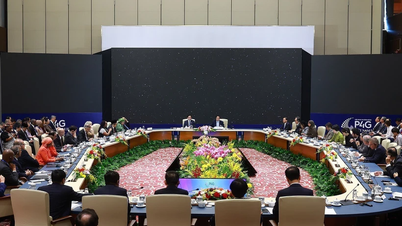








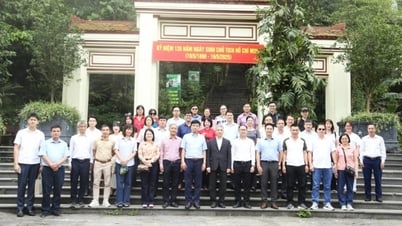
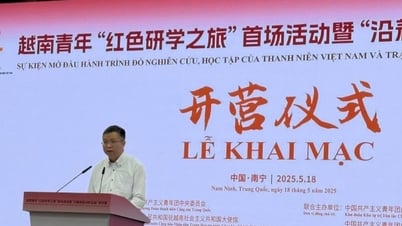













![[Photo] General Secretary To Lam attends the conference to review 10 years of implementing Directive No. 05 of the Politburo and evaluate the results of implementing Regulation No. 09 of the Central Public Security Party Committee.](https://vphoto.vietnam.vn/thumb/1200x675/vietnam/resource/IMAGE/2025/5/19/2f44458c655a4403acd7929dbbfa5039)











































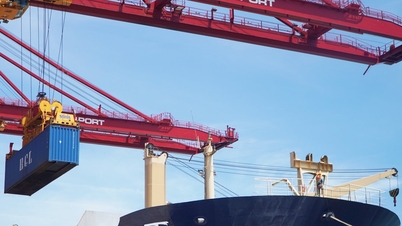














![[VIDEO] - Enhancing the value of Quang Nam OCOP products through trade connections](https://vphoto.vietnam.vn/thumb/402x226/vietnam/resource/IMAGE/2025/5/17/5be5b5fff1f14914986fad159097a677)



Comment (0)